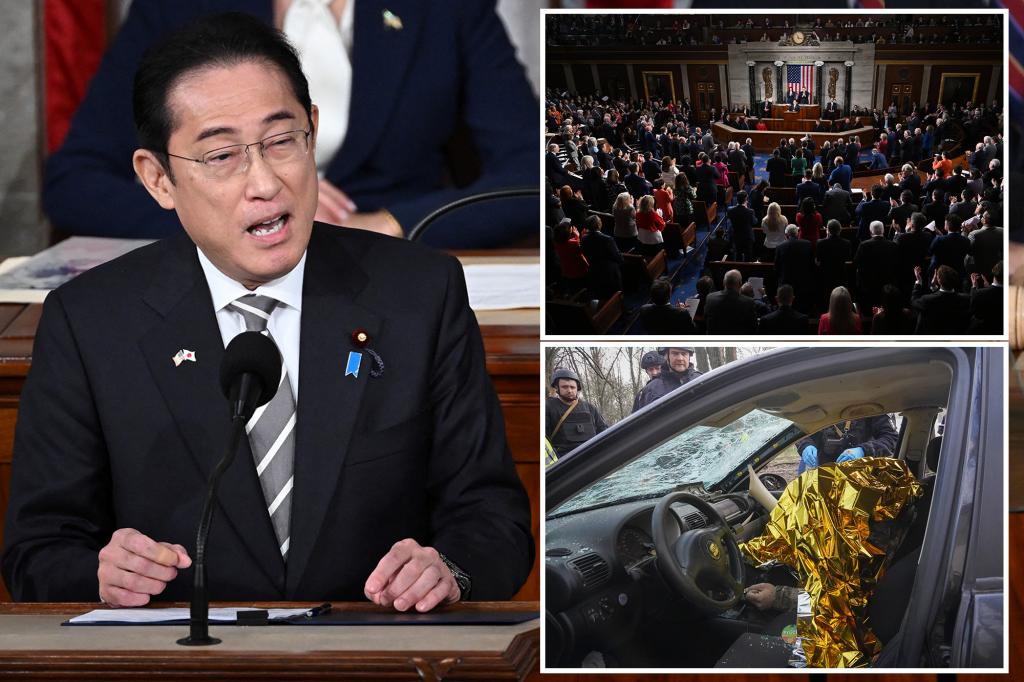In his address to a joint meeting of lawmakers on Capitol Hill, Japanese Prime Minister Fumio Kishida identified China as the “greatest strategic challenge” to world peace and highlighted the importance of continued support for Ukraine amid the ongoing conflict with Russia. He emphasized the need for the US to deter aggression and ensure peace against growing military and nuclear threats from China, Russia, and North Korea. Kishida warned of the danger posed by North Korea’s expanding nuclear and ballistic missile capabilities and denounced Russian President Vladimir Putin’s aggression against Ukraine, noting the global concern for the potential use of nuclear weapons.
Kishida expressed his commitment to standing with Ukraine and highlighted Japan’s contribution of $12 billion toward Ukraine’s defense. He also promised to work with NATO nations and increase Japan’s defense budget to 2% of GDP by 2027 as part of efforts to counter rising regional threats. The prime minister praised the strong alliance between Japan and the US and emphasized the importance of resolve in achieving peace. He reflected on the progress made by both countries since World War II and acknowledged the undercurrent of self-doubt in the US regarding its role in the world.
The prime minister underscored the importance of upholding human rights and political self-determination and criticized China’s surveillance practices and control over social media. He expressed concern about leaving a society where freedoms are suppressed and advocated for the protection of personal rights and privacy. Kishida highlighted Japan’s investments in the US economy and collaboration on military and technological projects, including plans to put a Japanese astronaut on the moon. He called attention to the need to address new forms of oppression, such as digital surveillance and the rapid advancements in artificial intelligence technology.
Kishida’s address marked only the second speech to Congress by a Japanese prime minister, following Shinzo Abe’s speech in 2015. The late Abe’s assassination in 2022 over political ties to the Unification Church, also known as the Moonies, had forced Kishida to remove one of his Cabinet officials with similar connections. Despite the gravity of the international crisis, Kishida shared personal anecdotes about his childhood experiences in the US, including attending a public elementary school in Queens and family trips to Niagara Falls. He expressed gratitude for the warm reception he and his family received and humorously contrasted the applause in Congress with that in the Japanese Diet.















